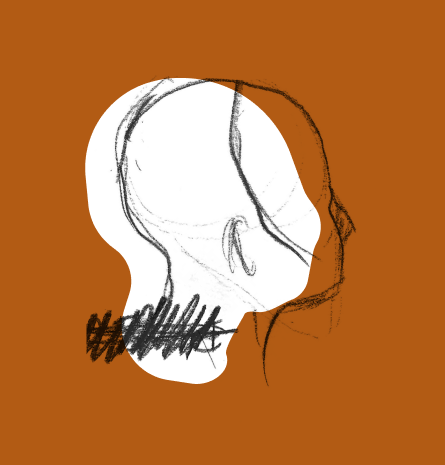This story was told by a person incarcerated at an ICE/Private-Contractor facility.
Please scroll down for an English translation.
UCI: Háblame de tu historia del COVID-19, por favor.
Caller: La historia no es personal, pero sí con un vecino. En la cual tuve que mirarlo de muy cerca y, gracias a Dios, en mí no se ha contagiado, pero en el vecino, mirando siempre los inicios de esta enfermedad, que es una realidad, estaba ayudando solamente decir: «Ponme algún analgésico, acetaminofén», algo, pero, realmente, es muy fuerte el sufrimiento empezando que falta— que mucho frío, que ya lo más sorprendente es cuando pierde el olfato o el gusto a la comida.
Entonces, es parte de que es impotente al estar cerca de una persona de que — aunque la viva uno y es totalmente difícil porque son nuevas enfermedades en la cual no puede uno lidiar, no sabe a qué acudir, mas solamente a veces se agarra uno más a la [ininteligible] sobre esa enfermedad.
UCI: ¿Enserio?
Caller Pero delirar es seguir [ininteligible] sobre las informaciones que nos dan los que saben de esta enfermedad, los médicos en general. Y lo primero es que, a veces, uno por estar cerca de esa persona que sufre.
UCI: Sí, Sí.
Caller: Sabiendo que lo único que queda es animarlo a que haga esto o haga esto otro, aunque uno no es médico, pero al menos para no destruirlo más. [ininteligible], pero es bastante difícil.
UCI: Sí tan mal.
Caller: Solamente acercar ya sea cualquier Tylenol o algo nomás y poquito de agua.
UCI: Qué bien.
Caller: Es lo que uno puede acercar y, bueno, tener, gracias a Dios, tenemos esas informaciones por medio de las comunicaciones, televisiones o radios, lo cual nos ayuda a orientarnos a que estemos lo más lejos. Y pues el sufrimiento [ininteligible].
UCI: Guau.
Caller: Se mira muy grande cuando llega esa enfermedad, que es una realidad. Así es que es parte de la experiencia de mirar cómo daña y ataca esta enfermedad o virus.
English Translation.
UCI: Talk to me about your story with COVID 19, please.
Caller: The story isn’t personal, but with a neighbor in which I had to look at him very closely and, Thank God, I didn’t contract it, but with a neighbor, looking at the beginning of this disease, that is a reality. He would only say “Give me an analgesic or acetaminophen, something, “but really suffering is strong at the beginning, you are starting to fail, feeling very cold and the most surprising is when the sense of smell and taste is lost.
So, it’s part of being impotent, being close to someone who is going through this and it’s totally difficult because these are new diseases in which no one can lead or advise or no one knows what to pay attention to, and only sometimes one grasps some parts of this disease.
UCI: Seriously?
Caller: But following some of the information we get from those who are more knowledgeable about this disease, like doctors in general. Sometimes, a person being close to this person who is suffering.
UCI: Yes, Yes.
Caller: Knowing that you can do is to encourage them to do this or that, although one is not a doctor, but at least not to destroy them the sick person even more. It’s very difficult.
UCI: Yes so bad.
Caller: Even if you only try by giving Tylenol or a little water.
UCI: That’s good.
Caller: It’s something a person can do and well, Thank God, we have information through media like television or radio which helps us orient ourselves even though we are far away. And well, suffering [unintelligible].
UCI: Wow.
Caller: Is very extreme when it comes to that disease which is a reality. This is part of the experience of observing how this disease or virus damages and attacks.
